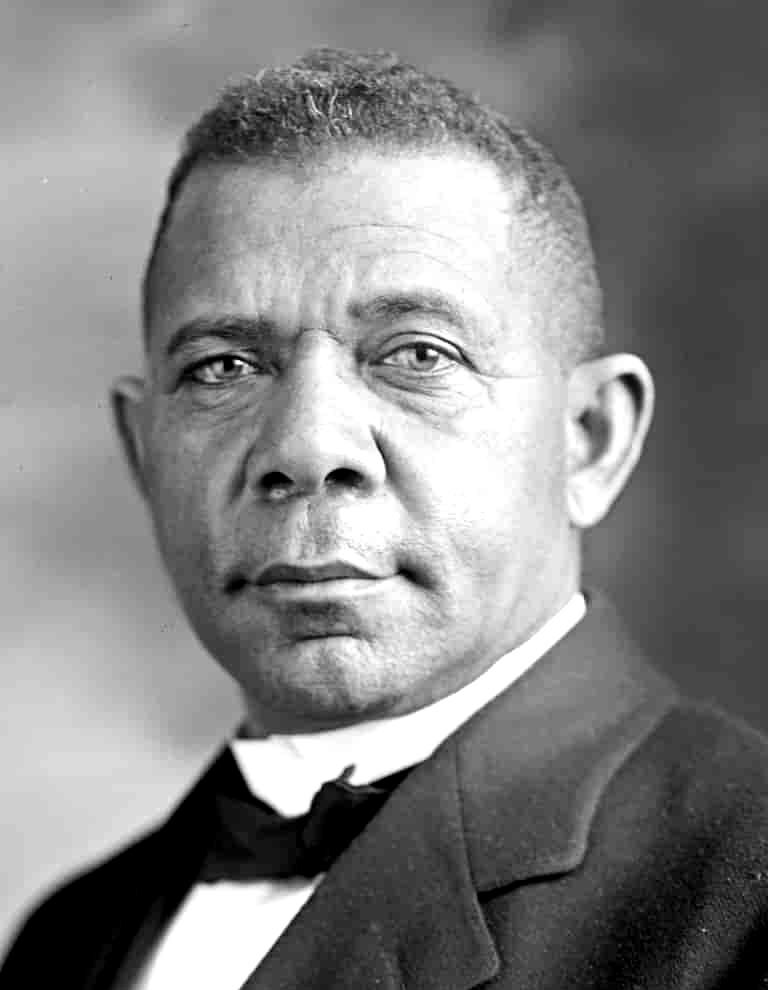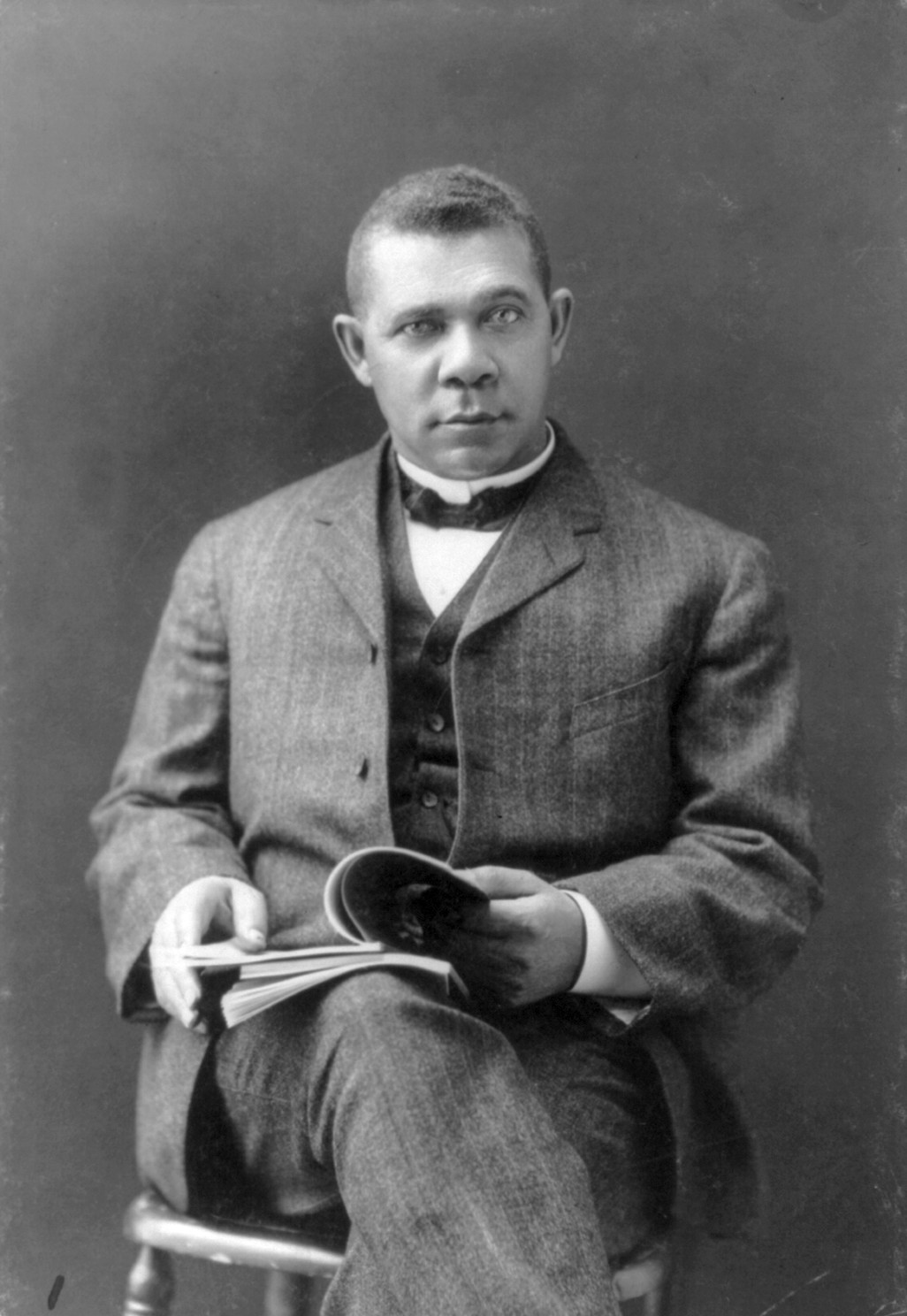Booker Taliaferro Washington, born in 1856, transcended the shackles of slavery to emerge as a towering figure within the African American community. His multifaceted identity as an educator, writer, and orator positioned him as one of the most distinguished leaders in the struggle for black empowerment. Born into the grim reality of slavery, Washington’s life took a transformative turn after the Emancipation Proclamation, which heralded his freedom. The arduous journey from bondage laid the foundation for his fervent commitment to education as a means of empowerment for African Americans.
Booker Washington (Black Leader) Interesting Fun Facts
Booker T. Washington’s life and contributions remain enigmatic, marked by both triumphs and controversies. His journey from slavery to leadership, the intricate networks he forged, and the controversies he navigated underscore the multifaceted nature of his legacy within the complex tapestry of African American history. Know more about Booker Taliaferro Washington by these 10 fascinating pieces of info.
1. Building Bridges and Networks
Washington’s influence extended beyond the classroom, as he skillfully constructed a network comprising numerous renowned entrepreneurs and philanthropists. This intricate web proved instrumental in securing substantial donations aimed at uplifting the African American community, underscoring his strategic vision for societal progress.
2. An Unprecedented Invitation
The zenith of Washington’s influence manifested when he achieved the unprecedented milestone of becoming the first African American to receive an invitation to the White House from a sitting American president. This historic event marked a significant step towards racial equality, albeit one fraught with controversy.
3. Booker’s Early Years in the Salt Mines
Booker Taliaferro Washington’s journey began in the salt mines of Malden, West Virginia, where his stepfather, a stern figure, set the young boys to toil. Eager for an education, Booker relentlessly requested permission to attend school, a plea his stepfather entertained only on the condition that the lad would compensate for lost earnings by working in the mines both mornings and evenings. It was a compromise struck in the gritty confines of labor, shaping Booker’s character and determination.
4. The Evolution of a Name: Booker Washington
In the realms of nomenclature, Booker’s identity underwent a transformation. Initially acquainted with only his first name, a twist of fate occurred during school roll calls, where students were summoned by both names. Desperation led him to append a familiar surname, birthing the appellation Booker Washington. His journey into nomenclature was far from linear, as it unfolded through familial revelations and the nuanced cadence of personal discovery.
5. The Janitorial Prelude at Hampton Institute
Fortune favored Washington as Hampton officials, testing his mettle by assigning him the task of cleaning a room, found him worthy of admission. His initiation into Hampton Institute came not as a scholar but as a janitor, a role that served as the prelude to his academic pursuits. The broom and mop became his companions as he balanced menial tasks with the pursuit of knowledge.
6. Educational Odyssey and Philosophical Shifts
Delving into brick masonry and various courses, Washington graduated in 1876, subsequently dedicating two years to teaching. His pursuit of knowledge continued at Wayland Seminary in Washington, D.C., where a disillusionment with classical education brewed. Observing a perceived lack of altruism among fellow students, he grew convinced that practical, manual training in rural skills and crafts held the key to uplifting the plight of his race, overshadowing the pursuit of higher learning.
7. The White House Controversy
However, the invitation to the White House became embroiled in a serious controversy, leading to the administration’s denial of the historical fact. This incident highlighted the societal tensions and challenges surrounding racial equality during Washington’s era, underscoring the complexity of his role in navigating such turbulent times.
8. Controversial Humor and Racial Stereotypes
However, in retrospect, Washington’s use of humor, particularly the employment of racial stereotypes and dialects in his one-liners, raises eyebrows. These recorded instances, sometimes bordering on sarcasm, could be viewed as inappropriate by contemporary standards. The complexities of historical context and evolving social norms prompt a nuanced evaluation of Washington’s legacy, acknowledging both his achievements and the imperfections of his rhetoric.
9. Harvard Honorary Degree and Quirky Remarks
An intriguing example of Washington’s quirkiness unfolded when he became the first African American to receive an honorary master’s degree from Harvard. In a moment of light-hearted self-reflection, he quipped, “I feel like a huckleberry in a bowl of milk.” This seemingly whimsical statement encapsulates Washington’s ability to navigate even prestigious occasions with a touch of humor, adding a distinctive flavor to his persona.
29. The Atlanta Compromise and Controversial Views
Washington’s legacy is not without its complexities. He played a pivotal role in the formulation of the Atlanta Compromise, a stance that sought a middle ground between the aspirations of African Americans and the prevailing racial prejudices. His views, at times, ignited controversy, as he suggested that whites could play a role in guiding African Americans towards civilization through education.
- 140 Interesting Facts About Madonna
- 142 Interesting Facts About Justin Bieber
- 35 Interesting Facts about Victor Hugo
- 60 Interesting Facts About Robert De Niro
- 40 Alfred Nobel Interesting Facts for All Ages
- 22 Interesting Facts About Kelli Williams
- 32 Interesting Facts About Woody Allen
- 25 Uma Thurman Important Facts
- Christopher Columbus Important Facts
- Sir Walter Raleigh Facts to Know about A Legend
- 37 Interesting Facts about Pablo Picasso
- 30 Interesting Facts About Frank Sinatra
- 18 Interesting Facts About George Clooney
- 20 Interesting Facts About Katy Perry
- 28 Interesting Facts About Demi Moore Bio
- 35 Interesting Facts About Novak Djokovic
- Rishi Kapoor – Biography | Movies | Achievements
- Irrfan Khan – Biography | Contribution | Achievement
- 75 John Lennon Interesting Facts
- 58 Drew Barrymore Interesting Facts for Fan

